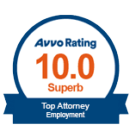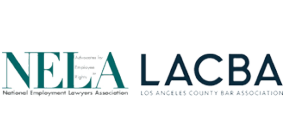Case Review
Consultations are FREE! No fees unless we win your case.
Contact Us
Thank you for contacting us.
We will get back to you as soon as possible.
We will get back to you as soon as possible.
Oops, there was an error sending your message.
Please try again later.
Please try again later.
Case Review
Consultations are FREE! No fees unless we win your case.
Contact Us
Thank you for contacting us.
We will get back to you as soon as possible.
We will get back to you as soon as possible.
Oops, there was an error sending your message.
Please try again later.
Please try again later.
Case Review
Consultations are FREE! No fees unless we win your case.
Contact Us
Thank you for contacting us.
We will get back to you as soon as possible.
We will get back to you as soon as possible.
Oops, there was an error sending your message.
Please try again later.
Please try again later.
Case Review
Consultations are FREE! No fees unless we win your case.
Contact Us
Thank you for contacting us.
We will get back to you as soon as possible.
We will get back to you as soon as possible.
Oops, there was an error sending your message.
Please try again later.
Please try again later.
-

"Best firm since the day my case started they always kept in touch and gave me updates on my case they got me a good settlement. I’m very happy with them."
– Gabriela Fonseca
-

"Pouya handled my case professionally and attentively. He kept me updated every step of the way and fought hard on my behalf. I was comfortable having him as my attorney and would definitely recommend him in the future. Thank you Chami Law and team!"
– Mona Shekarchi
Button -

"Definitely a great lawyer. He helped me to resolve my case, an excellent work he did as lawyer, and for representing in my case. I really appreciate all his hard work and effort, I would recommend him to anyone. 100%."
– Patty Tinajero
Button
OUR BLOG

3 February 2026
California has some of the strongest wage and hour protections in the country. Yet wage and overtime violations remain one of the most common employment issues facing workers across nearly every industry. Employers may misclassify employees, fail to pay overtime, require off-the-clock work, or issue inaccurate wage statements, sometimes intentionally, sometimes through ignorance of the law. At Chami Law, we help California employees understand their rights under the Labor Code and take action when those rights are violated. If you believe you are not being paid properly, knowing the law is the first step toward protecting yourself. California Overtime Laws: What the Labor Code Requires California Labor Code § 510 governs overtime compensation. Under this law, most non-exempt employees are entitled to: Overtime pay at 1.5× the regular rate of pay for: Hours worked over 8 in a single workday Hours worked over 40 in a workweek The first 8 hours worked on the seventh consecutive day of work in a workweek Double-time pay (2×) for: Hours worked over 12 in a single workday Hours worked over 8 on the seventh consecutive day of work Importantly, overtime must be calculated based on the employee's regular rate of pay, which may include nondiscretionary bonuses, commissions, and incentive compensation, not just the base hourly rate. Being paid a salary does not automatically make an employee exempt from overtime. Misclassification is one of the most common wage violations in California. Misclassification & Exemptions Under California Law California strictly limits who qualifies as an "exempt" employee. Exemptions are governed by the Industrial Welfare Commission (IWC) Wage Orders and require that an employee meet both a duties test and a salary threshold. If your employer labels you as "exempt" but: You spend most of your time on non-managerial or routine tasks You lack independent decision-making authority You are paid below the legally required salary threshold ...you may be misclassified and entitled to unpaid overtime, penalties, and interest. Meal & Rest Break Violations (Labor Code § 512) California Labor Code § 512 requires employers to provide: An uninterrupted 30-minute meal break for shifts over 5 hours A second meal break for shifts over 10 hours Paid 10-minute rest breaks for every 4 hours worked If an employer fails to provide a compliant meal or rest break, the employee is owed one additional hour of pay for each violation. Unpaid Wages & Your Right to Recover Them California Labor Code § 1194 allows employees to recover: Unpaid minimum wages Unpaid overtime wages Interest Reasonable attorney's fees and costs Employees cannot waive their right to minimum wage or overtime, even if they signed an agreement saying otherwise. Any such waiver is unenforceable under California law. Inaccurate Wage Statements (Labor Code § 226) Labor Code § 226 requires employers to provide accurate, itemized wage statements showing: Hours worked Gross wages earned Net wages paid All applicable pay rates Failure to provide compliant wage statements can result in statutory penalties, even if wages were eventually paid. Late or Withheld Final Paychecks (Labor Code § 203) When employment ends, California Labor Code § 203 requires that final wages be paid promptly. If an employer willfully fails to pay all earned wages at separation, the employee may be entitled to waiting time penalties equal to up to 30 days of wages. Common Wage & Overtime Violations Employees may have a valid claim if they experience: Off-the-clock work without pay Automatic meal break deductions Unpaid training, meetings, or travel time Improper rounding of time records Failure to include bonuses or commissions in overtime calculations Retaliation for raising wage concerns California Labor Code § 558 also allows for civil penalties against employers who violate wage and hour laws. How to Protect Yourself If you suspect a wage violation: Keep records of hours worked, schedules, pay stubs, and communications Do not alter your time records at an employer's request Understand your rights; retaliation for reporting wage violations is illegal Consider filing a claim with the California Labor Commissioner (DLSE) or consulting an employment attorney to evaluate your options How Chami Law Can Help At Chami Law, we represent California employees in wage and overtime disputes involving unpaid wages, misclassification, meal and rest break violations, and retaliation. Our role is to: Evaluate whether Labor Code violations occurred Explain your legal options clearly and honestly Handle claims before the Labor Commissioner or in civil court Fight for back pay, penalties, and attorney's fees Your consultation is free, confidential, and comes with no obligation. You pay nothing unless we recover compensation for you. Contact Chami Law today to explore your options with experienced employment litigators who are passionate about employee rights.

13 November 2025
If you're a California-based employee navigating health or family caregiving challenges, it's important to understand one of your key protections: the California Family Rights Act (CFRA). At Chami Law, we help employees evaluate and enforce their rights, especially in cases of leave denial, retaliation, discrimination, or interference. This article explains what CFRA is, when it applies, how you identify violations, and when you may want to seek legal guidance. What is CFRA? The California Family Rights Act is a state law that provides eligible employees the right to up to 12 workweeks of job‐protected, unpaid leave in a 12-month period for qualifying reasons. Key aspects: It covers caring for your own serious health condition, caring for a family member with a serious health condition, or bonding with a new child (birth, adoption, foster care). It is similar in many ways to the federal Family and Medical Leave Act (FMLA) but with some important differences. Under CFRA, the employer must continue the employee's group health plan benefits under the same conditions as if the employee had not taken leave. Who is eligible & when does CFRA apply? To qualify for CFRA leave under California law, you must meet certain eligibility requirements: You must have worked for the employer for at least 12 months. You must have worked at least 1,250 hours in the 12-month period immediately preceding the leave. Your employer must be a "covered employer." In California, that means an employer with five or more employees in many cases. The reason for the leave must be a qualifying reason: e.g., your own serious health condition, a qualified family member's serious health condition, a new child bonding, etc. What counts as a serious health condition? A "serious health condition" under CFRA is defined similar to FMLA: an illness, injury, impairment, or physical or mental condition that involves inpatient care or continuing treatment by a health care provider. Bonding Leave and "Designated Person" Under recent changes, CFRA allows leave to care for a "designated person" - someone the employee names who has a serious health condition and who is related by blood or whose association with the employee is equivalent to a family relationship. What rights do you have during leave? Once you're eligible and the leave qualifies under CFRA, here are key protections you should know: Job protection & reinstatement : Your employer must reinstate you to your same or a comparable position when you return from leave. Health benefits continuation : Your group health insurance must be maintained under the same terms while you're on leave (up to 12 workweeks). Intermittent or reduced schedule : If medically necessary, you may take leave intermittently or on a reduced schedule. Notice requirements : If the leave is foreseeable (like planned surgery or birth), you should give your employer at least 30 days' notice. Use of paid leave : While CFRA leave is unpaid by the employer, you may choose (or be required) to use accrued paid leave (sick, vacation) during your CFRA leave, depending on your employer's policies. What are potential violations and how to identify them? It's important to recognize when your rights under CFRA may have been violated. Some red flags include: Refusing to grant eligible leave : If you are eligible under the criteria and your employer denies your request for leave or fails to grant it. Failure to reinstate after leave : If you take CFRA leave and then your employer refuses to return you to your job (or a comparable job) when you come back. Health benefits dropped or changed : If your employer fails to maintain your group health plan coverage during your leave. Retaliation or discrimination : If your employer takes adverse action (demotion, reduction of hours, termination) because you took or attempted to take CFRA leave. Incorrect eligibility or misclassification : If employer claims you aren't eligible though you meet criteria (12 months, 1,250 hours, employer size) or misinterprets who qualifies. If any of the above occur, you may have a legal claim. For example, you might file a complaint with the California Civil Rights Department (CRD). How to protect yourself and document your rights Here are best practices for employees to protect their rights under CFRA: Document your eligibility : Keep records of your start date, hours worked, pay stubs, and employer size (number of employees) to show you meet the eligibility requirements. Provide clear notice : Even if your employer has forms, it's wise to give written notice (email or letter) that you believe you qualify under CFRA and state the reason and approximate timing. You don't have to use the words "CFRA" but you should clearly indicate the need for leave.Follow your employer’s internal procedures. Report the issue to HR in writing and keep copies. If HR is the problem, escalate to the next manager and document that you tried to resolve it internally. Follow employer's certification procedures : If asked, you may need to provide reasonable medical certification. But your employer cannot demand unnecessary details beyond what the law allows. Track your leave : Note the dates the leave begins, ends, any intermittent use, and whether you get reinstated to your job. Keep communications : Save emails, letters, memos about your leave request, employer responses, and any notes about conversations. Seek confidentiality if needed : If you are concerned about retaliation, avoid being the sole one to approach - you might consult legal counsel early to ensure your rights are protected. Know your fallback options : If you cannot work due to serious health condition, you may also have rights under other laws (e.g., disability/accommodation under the California Fair Employment and Housing Act (FEHA)). When should you consult legal counsel? You should consider reaching out to an employment law attorney - such as Chami Law - if any of the following apply: Your employer denied your request for CFRA leave without a valid basis. You took CFRA‐qualifying leave and upon return your job or benefits were changed , removed, or you were demoted or fired. You believe you were retaliated against for exercising your CFRA rights. Your employer is creating obstacles (e.g., improper certification demands, refusal to maintain health benefit coverage, refusing intermittent leave) and you're unsure how to proceed. You want to understand how CFRA interacts with other leave law s (such as pregnancy disability leave, PFL, state disability) and how to maximize job protection and benefits. At Chami Law, we offer no-obligation consultations to evaluate your situation, explain your rights, and guide you on potential next steps. Final Thoughts - You Don’t Have to Navigate this Alone Understanding your rights under CFRA is a key part of safeguarding your employment stability during times of serious health issues or family caregiving responsibilities. Many employees feel unsure, overwhelmed, or intimidated - but you don't have to navigate this alone. If you're in California and believe you may qualify for CFRA leave - or are facing pushback from your employer - reach out to Chami Law. Our team is here to help guide you through evaluating your options, identifying potential violations, advising on documentation and timing, and supporting you in pursuing the best outcome. We invite you to contact us for more information and to schedule a consultation.

7 October 2025
Sexual harassment is illegal in California. It's a form of sex-based discrimination that can target anyone - women, men, and non-binary people; straight, gay, and trans workers; applicants, employees, and even some contractors. It does not have to be motivated by sexual desire to be unlawful. What counts as sexual harassment? California recognizes two main types: Quid pro quo ("this for that"): someone with power (e.g., a supervisor) ties a job benefit - or freedom from punishment - to your submission to sexual advances or conduct. Even one instance can be unlawful. Hostile work environment : unwelcome conduct based on sex (including gender identity/expression or sexual orientation) that unreasonably interferes with your work or creates an intimidating, hostile, or offensive environment. A single severe incident can be enough; it doesn't have to be frequent. Examples include unwanted touching; sexual jokes or comments; leering; displaying sexual images; requests for sexual favors; or offering benefits in exchange for sexual conduct. Retaliating because someone rejects advances or complains is also unlawful. Key California rule : Courts and the Legislature clarified that harassment standards should be applied in a realistic way - "stray remarks" and overly high severity thresholds shouldn't be used to throw out valid cases. Who is protected? Which employers are covered? Everyone in California workplaces is protected from harassment - including applicants and people providing services under a contract - regardless of the employer's size. Harassment and discrimination are prohibited under the Fair Employment and Housing Act (FEHA). Among other things, FEHA protects workers from harassment because of sex, gender, gender identity/expression, sexual orientation, pregnancy/childbirth , and more. Federal law ( Title VII ) also bans sex-based harassment, which the EEOC enforces nationwide. Your employer's legal duties California holds employers to robust prevention and response standards: Keep a harassment-free workplace & act quickly . Employers must take reasonable steps to prevent and promptly correct harassment, including by non-employees like customers. They're responsible for harassment by supervisors/agents and may be liable if they knew or should have known about coworker or customer harassment and failed to act. Have a compliant written policy . California regulations require a clear anti-harassment/anti-retaliation policy with confidential complaint paths (not just your direct boss), prompt impartial investigations, documentation, and a ban on retaliation; it must be distributed to staff and translated when needed. Provide mandatory training . Employers with 5+ employees must give at least 1 hour of interactive training to non-supervisors and 2 hours to supervisors every two years and within six months of hire/promotion, covering harassment based on gender identity/expression and sexual orientation. How to recognize violations Ask yourself: Is someone demanding dates, sexual favors, or intimate messages in exchange for raises, shifts, plum assignments - or to avoid discipline? (Quid pro quo.) Are you dealing with unwanted touching; repeated sexual jokes; explicit images; "locker-room talk"; degrading comments about your body or gender; or misusing power to intimidate? (Hostile environment.) Did things worsen after you said no or reported it? That points to retaliation , which is also illegal under FEHA; whistleblower safeguards in the Labor Code offer additional protection for reporting violations. Immediate steps to protect yourself Document everything . Save emails, texts, DMs, voicemails, calendars, photos, and notes with dates, locations, witnesses, and what was said/done. (Back them up.) Tell the person to stop if you feel safe doing so . A short, clear message ("This is unwelcome. Please stop.") can help establish that the conduct is unwelcome. Use internal channels . Report through any path your policy allows - HR, a designated representative, a hotline, or a manager (not just your direct supervisor). California requires these options to exist. Seek support . Talk to a trusted coworker, friend, therapist, or advocate. If you feel unsafe, call 911. Get legal advice early . Quick guidance helps you navigate reporting choices, preserve evidence, and avoid common pitfalls. Reporting options outside your company California Civil Rights Department (CRD). You generally have three (3) years from the last act to start the CRD process for FEHA claims. You can request an immediate Right-to-Sue to proceed directly to court, or have CRD investigate/mediate first. After a Right-to-Sue, you typically have one (1) year to file in court. EEOC (federal). For Title VII claims, you usually must file a charge within 180 days , extended to 300 days in California because we have a parallel state agency. Charges are often dual-filed with CRD under a work-sharing agreement. Tip : Deadline rules can be tricky - especially if you had gaps in employment, worked remotely from another state, or the misconduct continued over time. Speak with an attorney as soon as you can about your specific timeline. Settlement confidentiality & your right to speak California's " Silenced No More Act " limits what employers can hide in settlements. Agreements cannot stop you from discussing facts of unlawful harassment, discrimination, or retaliation; employers also have restrictions on using nondisparagement or gag clauses. Separate rules limit "no-rehire" clauses. What can you recover? Depending on the case, remedies can include emotional-distress damages, back pay, reinstatement or promotion, policy changes, penalties, and attorney's fees ; punitive damages may be available in egregious cases. Common questions Does the law apply if my company is small? Yes. California's harassment rules apply to all workplaces, no matter the size. What if the harasser is a customer or vendor? Your employer still must take immediate and appropriate corrective action once it knows or should know. Can my boss be personally liable? Yes. Individuals who harass (supervisors and coworkers) can face personal liability under California law. Will I be protected if I report it? Retaliation for reporting or participating in an investigation is illegal under FEHA and California's whistleblower laws. How Chami Law helps Confidential, no-obligation case review. We'll listen, assess your options (internal report, CRD/EEOC charge, immediate Right-to-Sue, or a negotiated resolution), and map out next steps - on your timeline. Evidence & strategy. We help organize evidence, preserve texts/emails, and guide you through complaint procedures so you're protected from retaliation. Negotiation & litigation. From demand letters and policy fixes to mediation and trial, we pursue results that protect your career and well-being. Bilingual support. Nuestro equipo es bilingüe en español para atenderle con confianza y claridad. Quick checklist (save this) Write down what happened (who, what, when, where, witnesses). Preserve texts/emails/DMs/photos. Review your company's policy and report through any listed channel. Consider a CRD or EEOC filing to preserve deadlines. Talk to a lawyer early - before signing anything or quitting. Talk with Chami Law - free & confidential If you've experienced sexual harassment - or you're not sure whether what's happening is illegal - reach out. We'll explain your options and protect your rights, with no obligation to move forward. Contact Chami Law | Se habla español.
OUR BLOG

3 February 2026
California has some of the strongest wage and hour protections in the country. Yet wage and overtime violations remain one of the most common employment issues facing workers across nearly every industry. Employers may misclassify employees, fail to pay overtime, require off-the-clock work, or issue inaccurate wage statements, sometimes intentionally, sometimes through ignorance of the law. At Chami Law, we help California employees understand their rights under the Labor Code and take action when those rights are violated. If you believe you are not being paid properly, knowing the law is the first step toward protecting yourself. California Overtime Laws: What the Labor Code Requires California Labor Code § 510 governs overtime compensation. Under this law, most non-exempt employees are entitled to: Overtime pay at 1.5× the regular rate of pay for: Hours worked over 8 in a single workday Hours worked over 40 in a workweek The first 8 hours worked on the seventh consecutive day of work in a workweek Double-time pay (2×) for: Hours worked over 12 in a single workday Hours worked over 8 on the seventh consecutive day of work Importantly, overtime must be calculated based on the employee's regular rate of pay, which may include nondiscretionary bonuses, commissions, and incentive compensation, not just the base hourly rate. Being paid a salary does not automatically make an employee exempt from overtime. Misclassification is one of the most common wage violations in California. Misclassification & Exemptions Under California Law California strictly limits who qualifies as an "exempt" employee. Exemptions are governed by the Industrial Welfare Commission (IWC) Wage Orders and require that an employee meet both a duties test and a salary threshold. If your employer labels you as "exempt" but: You spend most of your time on non-managerial or routine tasks You lack independent decision-making authority You are paid below the legally required salary threshold ...you may be misclassified and entitled to unpaid overtime, penalties, and interest. Meal & Rest Break Violations (Labor Code § 512) California Labor Code § 512 requires employers to provide: An uninterrupted 30-minute meal break for shifts over 5 hours A second meal break for shifts over 10 hours Paid 10-minute rest breaks for every 4 hours worked If an employer fails to provide a compliant meal or rest break, the employee is owed one additional hour of pay for each violation. Unpaid Wages & Your Right to Recover Them California Labor Code § 1194 allows employees to recover: Unpaid minimum wages Unpaid overtime wages Interest Reasonable attorney's fees and costs Employees cannot waive their right to minimum wage or overtime, even if they signed an agreement saying otherwise. Any such waiver is unenforceable under California law. Inaccurate Wage Statements (Labor Code § 226) Labor Code § 226 requires employers to provide accurate, itemized wage statements showing: Hours worked Gross wages earned Net wages paid All applicable pay rates Failure to provide compliant wage statements can result in statutory penalties, even if wages were eventually paid. Late or Withheld Final Paychecks (Labor Code § 203) When employment ends, California Labor Code § 203 requires that final wages be paid promptly. If an employer willfully fails to pay all earned wages at separation, the employee may be entitled to waiting time penalties equal to up to 30 days of wages. Common Wage & Overtime Violations Employees may have a valid claim if they experience: Off-the-clock work without pay Automatic meal break deductions Unpaid training, meetings, or travel time Improper rounding of time records Failure to include bonuses or commissions in overtime calculations Retaliation for raising wage concerns California Labor Code § 558 also allows for civil penalties against employers who violate wage and hour laws. How to Protect Yourself If you suspect a wage violation: Keep records of hours worked, schedules, pay stubs, and communications Do not alter your time records at an employer's request Understand your rights; retaliation for reporting wage violations is illegal Consider filing a claim with the California Labor Commissioner (DLSE) or consulting an employment attorney to evaluate your options How Chami Law Can Help At Chami Law, we represent California employees in wage and overtime disputes involving unpaid wages, misclassification, meal and rest break violations, and retaliation. Our role is to: Evaluate whether Labor Code violations occurred Explain your legal options clearly and honestly Handle claims before the Labor Commissioner or in civil court Fight for back pay, penalties, and attorney's fees Your consultation is free, confidential, and comes with no obligation. You pay nothing unless we recover compensation for you. Contact Chami Law today to explore your options with experienced employment litigators who are passionate about employee rights.

13 November 2025
If you're a California-based employee navigating health or family caregiving challenges, it's important to understand one of your key protections: the California Family Rights Act (CFRA). At Chami Law, we help employees evaluate and enforce their rights, especially in cases of leave denial, retaliation, discrimination, or interference. This article explains what CFRA is, when it applies, how you identify violations, and when you may want to seek legal guidance. What is CFRA? The California Family Rights Act is a state law that provides eligible employees the right to up to 12 workweeks of job‐protected, unpaid leave in a 12-month period for qualifying reasons. Key aspects: It covers caring for your own serious health condition, caring for a family member with a serious health condition, or bonding with a new child (birth, adoption, foster care). It is similar in many ways to the federal Family and Medical Leave Act (FMLA) but with some important differences. Under CFRA, the employer must continue the employee's group health plan benefits under the same conditions as if the employee had not taken leave. Who is eligible & when does CFRA apply? To qualify for CFRA leave under California law, you must meet certain eligibility requirements: You must have worked for the employer for at least 12 months. You must have worked at least 1,250 hours in the 12-month period immediately preceding the leave. Your employer must be a "covered employer." In California, that means an employer with five or more employees in many cases. The reason for the leave must be a qualifying reason: e.g., your own serious health condition, a qualified family member's serious health condition, a new child bonding, etc. What counts as a serious health condition? A "serious health condition" under CFRA is defined similar to FMLA: an illness, injury, impairment, or physical or mental condition that involves inpatient care or continuing treatment by a health care provider. Bonding Leave and "Designated Person" Under recent changes, CFRA allows leave to care for a "designated person" - someone the employee names who has a serious health condition and who is related by blood or whose association with the employee is equivalent to a family relationship. What rights do you have during leave? Once you're eligible and the leave qualifies under CFRA, here are key protections you should know: Job protection & reinstatement : Your employer must reinstate you to your same or a comparable position when you return from leave. Health benefits continuation : Your group health insurance must be maintained under the same terms while you're on leave (up to 12 workweeks). Intermittent or reduced schedule : If medically necessary, you may take leave intermittently or on a reduced schedule. Notice requirements : If the leave is foreseeable (like planned surgery or birth), you should give your employer at least 30 days' notice. Use of paid leave : While CFRA leave is unpaid by the employer, you may choose (or be required) to use accrued paid leave (sick, vacation) during your CFRA leave, depending on your employer's policies. What are potential violations and how to identify them? It's important to recognize when your rights under CFRA may have been violated. Some red flags include: Refusing to grant eligible leave : If you are eligible under the criteria and your employer denies your request for leave or fails to grant it. Failure to reinstate after leave : If you take CFRA leave and then your employer refuses to return you to your job (or a comparable job) when you come back. Health benefits dropped or changed : If your employer fails to maintain your group health plan coverage during your leave. Retaliation or discrimination : If your employer takes adverse action (demotion, reduction of hours, termination) because you took or attempted to take CFRA leave. Incorrect eligibility or misclassification : If employer claims you aren't eligible though you meet criteria (12 months, 1,250 hours, employer size) or misinterprets who qualifies. If any of the above occur, you may have a legal claim. For example, you might file a complaint with the California Civil Rights Department (CRD). How to protect yourself and document your rights Here are best practices for employees to protect their rights under CFRA: Document your eligibility : Keep records of your start date, hours worked, pay stubs, and employer size (number of employees) to show you meet the eligibility requirements. Provide clear notice : Even if your employer has forms, it's wise to give written notice (email or letter) that you believe you qualify under CFRA and state the reason and approximate timing. You don't have to use the words "CFRA" but you should clearly indicate the need for leave.Follow your employer’s internal procedures. Report the issue to HR in writing and keep copies. If HR is the problem, escalate to the next manager and document that you tried to resolve it internally. Follow employer's certification procedures : If asked, you may need to provide reasonable medical certification. But your employer cannot demand unnecessary details beyond what the law allows. Track your leave : Note the dates the leave begins, ends, any intermittent use, and whether you get reinstated to your job. Keep communications : Save emails, letters, memos about your leave request, employer responses, and any notes about conversations. Seek confidentiality if needed : If you are concerned about retaliation, avoid being the sole one to approach - you might consult legal counsel early to ensure your rights are protected. Know your fallback options : If you cannot work due to serious health condition, you may also have rights under other laws (e.g., disability/accommodation under the California Fair Employment and Housing Act (FEHA)). When should you consult legal counsel? You should consider reaching out to an employment law attorney - such as Chami Law - if any of the following apply: Your employer denied your request for CFRA leave without a valid basis. You took CFRA‐qualifying leave and upon return your job or benefits were changed , removed, or you were demoted or fired. You believe you were retaliated against for exercising your CFRA rights. Your employer is creating obstacles (e.g., improper certification demands, refusal to maintain health benefit coverage, refusing intermittent leave) and you're unsure how to proceed. You want to understand how CFRA interacts with other leave law s (such as pregnancy disability leave, PFL, state disability) and how to maximize job protection and benefits. At Chami Law, we offer no-obligation consultations to evaluate your situation, explain your rights, and guide you on potential next steps. Final Thoughts - You Don’t Have to Navigate this Alone Understanding your rights under CFRA is a key part of safeguarding your employment stability during times of serious health issues or family caregiving responsibilities. Many employees feel unsure, overwhelmed, or intimidated - but you don't have to navigate this alone. If you're in California and believe you may qualify for CFRA leave - or are facing pushback from your employer - reach out to Chami Law. Our team is here to help guide you through evaluating your options, identifying potential violations, advising on documentation and timing, and supporting you in pursuing the best outcome. We invite you to contact us for more information and to schedule a consultation.

7 October 2025
Sexual harassment is illegal in California. It's a form of sex-based discrimination that can target anyone - women, men, and non-binary people; straight, gay, and trans workers; applicants, employees, and even some contractors. It does not have to be motivated by sexual desire to be unlawful. What counts as sexual harassment? California recognizes two main types: Quid pro quo ("this for that"): someone with power (e.g., a supervisor) ties a job benefit - or freedom from punishment - to your submission to sexual advances or conduct. Even one instance can be unlawful. Hostile work environment : unwelcome conduct based on sex (including gender identity/expression or sexual orientation) that unreasonably interferes with your work or creates an intimidating, hostile, or offensive environment. A single severe incident can be enough; it doesn't have to be frequent. Examples include unwanted touching; sexual jokes or comments; leering; displaying sexual images; requests for sexual favors; or offering benefits in exchange for sexual conduct. Retaliating because someone rejects advances or complains is also unlawful. Key California rule : Courts and the Legislature clarified that harassment standards should be applied in a realistic way - "stray remarks" and overly high severity thresholds shouldn't be used to throw out valid cases. Who is protected? Which employers are covered? Everyone in California workplaces is protected from harassment - including applicants and people providing services under a contract - regardless of the employer's size. Harassment and discrimination are prohibited under the Fair Employment and Housing Act (FEHA). Among other things, FEHA protects workers from harassment because of sex, gender, gender identity/expression, sexual orientation, pregnancy/childbirth , and more. Federal law ( Title VII ) also bans sex-based harassment, which the EEOC enforces nationwide. Your employer's legal duties California holds employers to robust prevention and response standards: Keep a harassment-free workplace & act quickly . Employers must take reasonable steps to prevent and promptly correct harassment, including by non-employees like customers. They're responsible for harassment by supervisors/agents and may be liable if they knew or should have known about coworker or customer harassment and failed to act. Have a compliant written policy . California regulations require a clear anti-harassment/anti-retaliation policy with confidential complaint paths (not just your direct boss), prompt impartial investigations, documentation, and a ban on retaliation; it must be distributed to staff and translated when needed. Provide mandatory training . Employers with 5+ employees must give at least 1 hour of interactive training to non-supervisors and 2 hours to supervisors every two years and within six months of hire/promotion, covering harassment based on gender identity/expression and sexual orientation. How to recognize violations Ask yourself: Is someone demanding dates, sexual favors, or intimate messages in exchange for raises, shifts, plum assignments - or to avoid discipline? (Quid pro quo.) Are you dealing with unwanted touching; repeated sexual jokes; explicit images; "locker-room talk"; degrading comments about your body or gender; or misusing power to intimidate? (Hostile environment.) Did things worsen after you said no or reported it? That points to retaliation , which is also illegal under FEHA; whistleblower safeguards in the Labor Code offer additional protection for reporting violations. Immediate steps to protect yourself Document everything . Save emails, texts, DMs, voicemails, calendars, photos, and notes with dates, locations, witnesses, and what was said/done. (Back them up.) Tell the person to stop if you feel safe doing so . A short, clear message ("This is unwelcome. Please stop.") can help establish that the conduct is unwelcome. Use internal channels . Report through any path your policy allows - HR, a designated representative, a hotline, or a manager (not just your direct supervisor). California requires these options to exist. Seek support . Talk to a trusted coworker, friend, therapist, or advocate. If you feel unsafe, call 911. Get legal advice early . Quick guidance helps you navigate reporting choices, preserve evidence, and avoid common pitfalls. Reporting options outside your company California Civil Rights Department (CRD). You generally have three (3) years from the last act to start the CRD process for FEHA claims. You can request an immediate Right-to-Sue to proceed directly to court, or have CRD investigate/mediate first. After a Right-to-Sue, you typically have one (1) year to file in court. EEOC (federal). For Title VII claims, you usually must file a charge within 180 days , extended to 300 days in California because we have a parallel state agency. Charges are often dual-filed with CRD under a work-sharing agreement. Tip : Deadline rules can be tricky - especially if you had gaps in employment, worked remotely from another state, or the misconduct continued over time. Speak with an attorney as soon as you can about your specific timeline. Settlement confidentiality & your right to speak California's " Silenced No More Act " limits what employers can hide in settlements. Agreements cannot stop you from discussing facts of unlawful harassment, discrimination, or retaliation; employers also have restrictions on using nondisparagement or gag clauses. Separate rules limit "no-rehire" clauses. What can you recover? Depending on the case, remedies can include emotional-distress damages, back pay, reinstatement or promotion, policy changes, penalties, and attorney's fees ; punitive damages may be available in egregious cases. Common questions Does the law apply if my company is small? Yes. California's harassment rules apply to all workplaces, no matter the size. What if the harasser is a customer or vendor? Your employer still must take immediate and appropriate corrective action once it knows or should know. Can my boss be personally liable? Yes. Individuals who harass (supervisors and coworkers) can face personal liability under California law. Will I be protected if I report it? Retaliation for reporting or participating in an investigation is illegal under FEHA and California's whistleblower laws. How Chami Law helps Confidential, no-obligation case review. We'll listen, assess your options (internal report, CRD/EEOC charge, immediate Right-to-Sue, or a negotiated resolution), and map out next steps - on your timeline. Evidence & strategy. We help organize evidence, preserve texts/emails, and guide you through complaint procedures so you're protected from retaliation. Negotiation & litigation. From demand letters and policy fixes to mediation and trial, we pursue results that protect your career and well-being. Bilingual support. Nuestro equipo es bilingüe en español para atenderle con confianza y claridad. Quick checklist (save this) Write down what happened (who, what, when, where, witnesses). Preserve texts/emails/DMs/photos. Review your company's policy and report through any listed channel. Consider a CRD or EEOC filing to preserve deadlines. Talk to a lawyer early - before signing anything or quitting. Talk with Chami Law - free & confidential If you've experienced sexual harassment - or you're not sure whether what's happening is illegal - reach out. We'll explain your options and protect your rights, with no obligation to move forward. Contact Chami Law | Se habla español.
Contact Us
Consultations are FREE! No fees unless we win your case.
Contact Us
Thank you for contacting us.
We will get back to you as soon as possible.
We will get back to you as soon as possible.
Oops, there was an error sending your message.
Please try again later.
Please try again later.















